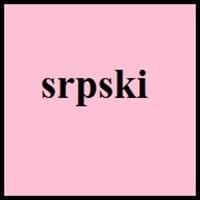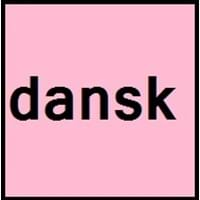Countries
Bosnia and Herzegovina, Kosovo, Serbia, Slovakia
Denmark, European Union, Faroe Islands, Greenland, Nordic Council
National Language
Bosnia, Croatia, Montenegro, Serbia
Denmark, Faroe Islands, Germany, Greenland
Second Language
Not spoken in any of the countries
Not spoken in any of the countries
Speaking Continents
Europe
Europe, North America, South America
Minority Language
Croatia, Czech Republic, Hungary, Macedonia, Montenegro, Romania, Slovakia
Argentina, Brazil, Canada, Germany, Greenland, Norway, Sweden, United States of America
Regulated By
Board for Standardization of the Serbian Language
Dansk Sprognævn (Danish Language Committee)
Interesting Facts
- Serbian language was derived from the Old Church Salvic, as the language was commonly spoken by most of Slavic people in the 9th Century.
- Serbian language is based on Stokavian dialect.
- Danish, Norwegian and Swedish are mutually intelligible, that means if u learn Danish is almost like learning three languages in one.
- There are 9 vowels in Danish language, which can be pronounced in 16 different ways.
Similar To
Bosnian and Croatian Languages
Norwegian and Swedish
Derived From
Not Available
Old Norse Language
Alphabets in
Serbian-Alphabets.jpg#200
Danish-Alphabets.jpg#200
Scripts
Cyrillic, Latin
Latin
Writing Direction
Left-To-Right, Horizontal
Left-To-Right, Horizontal
Hello
Здраво (Zdravo)
Hallo
Thank You
Хвала лепо (Hvala lepo)
Mange tak
How Are You?
Како си? (Kako si?)
Hvordan har du det?
Good Night
Лаку ноћ (Laku noć)
God nat
Good Evening
Добро вече (Dobro veče)
God aften
Good Afternoon
Добар дан (Dobar dan)
God eftermiddag
Good Morning
Добро јутро (Dobro jutro)
God morgen
Please
Молим (Molim)
Please
Sorry
Жао ми је (Žao mi je)
Undskyld!
Bye
Довиђења (Doviđenja)
Farvel
I Love You
Волим те (Volim te)
Jeg elsker dig
Excuse Me
Извините (Izvinite)
Undskyld mig
Dialect 1
Prizren-Timok
Scanian
Where They Speak
Southeastern Serbia
Sweden
How Many People Speak
Not Available
Dialect 2
Smederevo–Vršac
Jutlandic
Where They Speak
Serbia
Denmark
Dialect 3
Torlakian
Bornholmsk
Where They Speak
Bulgaria, France, Kosovo, Macedonia, Romania, Serbia
Island of Bornholm
How Many People Speak
Not Available
Speaking Population
Not Available
Not Available
Native Name
српски (srpski) српски језик (srpski jezik)
dansk
Alternative Names
Montenegrin
Dansk, Rigsdansk
German Name
Serbisch
Dänisch
Pronunciation
[sr̩̂pskiː]
[d̥ænˀsɡ̊]
Ethnicity
Serbs
Danish people or Danes
Origin
11th Century
c. 1100 AD
Language Family
Indo-European Family
Indo-European Family
Subgroup
Not Available
Not Available
Branch
Not Available
Not Available
Early Forms
No early forms
Old Danish, Early Modern Danish
Standard Forms
Standard Serbian
Rigsdansk
Language Position
Not Available
Signed Forms
Not Available
Signed Danish
Scope
Individual
Individual
ISO 639 6
Not Available
Not Available
Glottocode
serb1264
dani1284
Linguasphere
53-AAA-g
5 2-AAA-bf & -ca to -cj
Language Type
Living
Living
Language Linguistic Typology
Subject-Verb-Object
Subject-Verb-Object
Language Morphological Typology
Not Available
Fusional
All Serbian and Danish Dialects
Most languages have dialects where each dialect differ from other dialect with respect to grammar and vocabulary. Here you will get to know all Serbian and Danish dialects. Various dialects of Serbian and Danish language differ in their pronunciations and words. Dialects of Serbian are spoken in different Serbian Speaking Countries whereas Danish Dialects are spoken in different Danish speaking countries. Also the number of people speaking Serbian vs Danish Dialects varies from few thousands to many millions. Some of the Serbian dialects include: Prizren-Timok, Smederevo–Vršac. Danish dialects include: Scanian , Jutlandic. Also learn about dialects in South American Languages and North American Languages.
Serbian and Danish Speaking population
Serbian and Danish speaking population is one of the factors based on which Serbian and Danish languages can be compared. The total count of Serbian and Danish Speaking population in percentage is also given. The percentage of people speaking Serbian language is Not Available whereas the percentage of people speaking Danish language is Not Available. When we compare the speaking population of any two languages we get to know which of two languages is more popular. Find more details about how many people speak Serbian and Danish on Serbian vs Danish where you will get native speakers, speaking population in percentage and native names.
Serbian and Danish Language Codes
Serbian and Danish language codes are used in those applications where using language names are tedious. Serbian and Danish Language Codes include all the international language codes, glottocodes and linguasphere.





